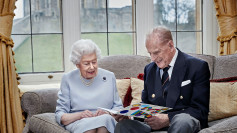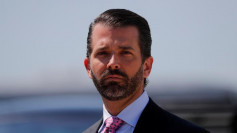In a day that was meant to celebrate the Kansas City Chiefs' Super Bowl triumph, the city was instead enveloped in sorrow following a tragic shooting during the team's victory parade on February 14. Amidst this chaos, Taylor Swift, the renowned singer and girlfriend of Chiefs' star Travis Kelce, was notably absent, a decision that city officials hinted might have been influenced by concerns for safety and security.
Brian Platt, Kansas City's City Manager, revealed in a statement to a local radio station that the city might have discreetly advised Swift's team against her attendance to avoid adding to the security complexities of the event. "I can't confirm or deny, but we might have already told that to her team, just to keep everybody safe and make things a little bit easier for us," Platt mentioned, highlighting the delicate balance officials sought to maintain between celebration and safety.
Swift, who was preparing for the next leg of her 'Eras Tour' in Melbourne, Australia, on February 16, was seen arriving in Australia around midnight local time, effectively ruling out any possibility of her participation in the Kansas City festivities. The music superstar's decision to stay away, whether influenced by city officials' recommendations or her professional commitments, seemed prescient in the wake of the ensuing tragedy.
The shooting, which occurred at Union Square in Kansas City, resulted in the death of one individual and injuries to several others, including children. The Kansas City Police Department confirmed the incident on their official social media channels, urging people to vacate the area as they worked to secure the scene and ascertain the extent of the casualties.
The community's response was one of shock and mourning, with figures such as Patrick Mahomes and Drue Tranquill expressing their condolences and calling for prayers for the victims. "Praying for Kansas City ... Shooting people is never the answer," Mahomes shared on Instagram, reflecting a sentiment echoed across the nation in the face of recurring acts of violence.
Despite Swift's absence, her influence was palpable as fans infused the parade with elements of her music, playing "Bad Blood" and other hits as a nod to her relationship with Kelce and her indirect connection to the Chiefs' season. The NFL and its fans have embraced Swift as part of the football community, celebrating her presence at games and her interactions with the team throughout the season.
As Kansas City grapples with the aftermath of the parade shooting, the incident raises important questions about public safety at large events and the responsibilities of cities and event organizers to ensure the well-being of participants. The precautionary measures hinted at by city officials, including the delicate decision to advise a global superstar like Swift against attending, underscore the complexities of managing public safety in an unpredictable environment.
In the end, the Chiefs' parade tragedy serves as a somber reminder of the fragility of public gatherings in the modern age, where joyous celebrations can swiftly turn tragic, leaving communities to mourn and reflect on the path forward.






